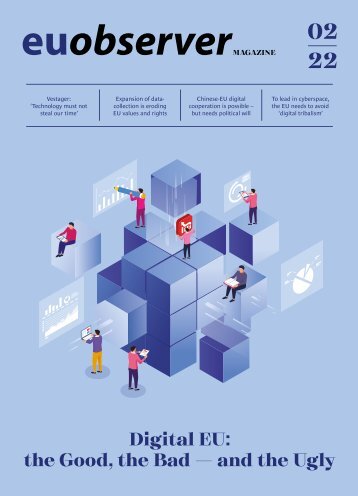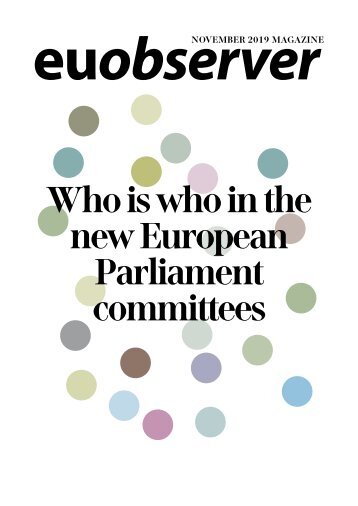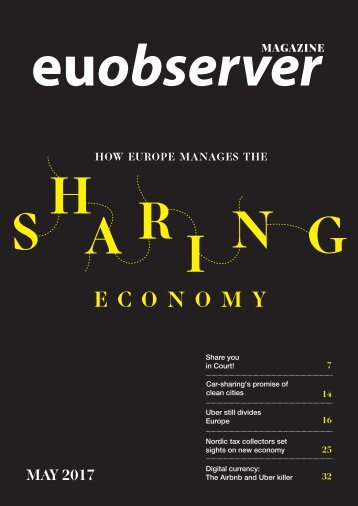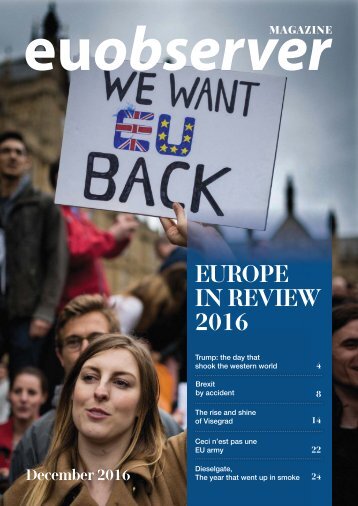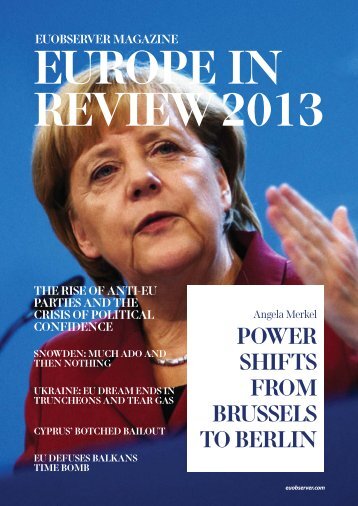Digital EU: the Good, the Bad — and the Ugly
- Text
- Strategic
- Cooperation
- Technologies
- Economy
- Innovation
- Asean
- Artificial
- Global
- European
- Digital
DIGITAL INNOVATION
DIGITAL INNOVATION ‘DIGITAL EU’: THE GOOD, THE BAD & THE UGLY How does ‘Digital Strategic Autonomy’ really work? Buzzwords like ‘strategic’ and ‘autonomy’ have long been heard among Brussels’ policy-makers, think-tankers, and academics. However, the concept has only become a real priority as a result of recent events, bringing the geopolitical role of the EU to the top of the agenda. By DR ANTONIOS NESTORAS AND FRANCESCO CAPPELLETTI Strategic autonomy today is no longer just about security. Many domains are now thought of to be ‘strategic’: economy and industry, manufacturing and critical infrastructure, sustainability, energy security and the electricity revolution, plus also, of course, security and defence. But the real game for the future is undoubtedly now being played out in the field of new technologies and, even more so, in the digitalisation of societies. Although it is now clear that autonomy cannot mean protectionism, in times of crisis, it might mean ‘pragmatism’. In this context, a solid and adaptable industrial base is essential to ensure the capacity to act with autonomy. On the one hand, finding like-minded partners is now more necessary than ever. On the other hand, member states and the EU must create a dialogue with strategic and even systemic rivals. As the world itself functions on interdependencies, openness will secure the goals and needs of a digital, sustainable, and future-proof European transition. Yet rebalancing the nature of such relations towards an assertive stance may be necessary in the longterm strategy — ensuring that no compromises in terms of core values will be ever accepted. Critical technologies must be considered instruments of digital strategic autonomy. With the Digital Services Act the Digital Market Act, the Data Governance Act and Data Act, European institutions have taken significant steps toward the way European companies store, use, and process data and deal with privacy 19
- Page 1 and 2: MAGAZINE 02 22 Vestager: ‘Technol
- Page 4: TABLE OF CONTENTS ‘DIGITAL EU’:
- Page 8: DIGITAL INNOVATION ‘DIGITAL EU’
- Page 12: ‘DIGITAL EU’: THE GOOD, THE BAD
- Page 16: DIGITAL INNOVATION ‘DIGITAL EU’
- Page 22: DIGITAL INNOVATION ‘DIGITAL EU’
- Page 26: DIGITAL INNOVATION Stakeholder Arti
- Page 30: DIGITAL INNOVATION ‘DIGITAL EU’
- Page 34: DIGITAL INNOVATION ‘DIGITAL EU’
- Page 38: DIGITAL INNOVATION ‘DIGITAL EU’
- Page 42: DIGITAL INNOVATION ‘DIGITAL EU’
- Page 46: ‘DIGITAL EU’: THE GOOD, THE BAD
- Page 50: An A-Z glossary of digital and tech
Inappropriate
Loading...
Mail this publication
Loading...
Embed
Loading...


